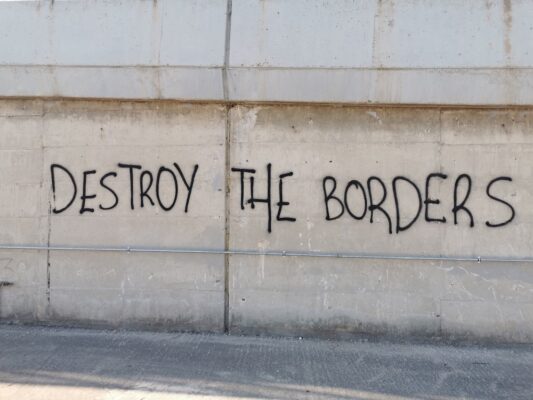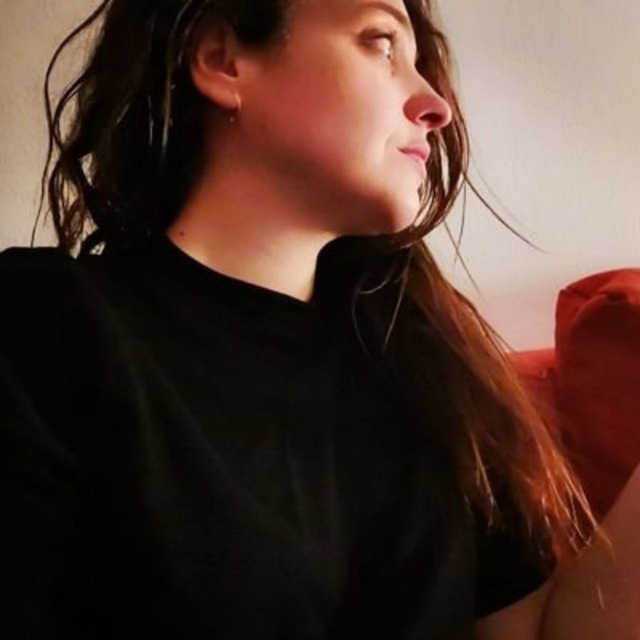Search
To search for an exact match, type the word or phrase you want in quotation marks.
A*DESK has been offering since 2002 contents about criticism and contemporary art. A*DESK has become consolidated thanks to all those who have believed in the project, all those who have followed us, debating, participating and collaborating. Many people have collaborated with A*DESK, and continue to do so. Their efforts, knowledge and belief in the project are what make it grow internationally. At A*DESK we have also generated work for over one hundred professionals in culture, from small collaborations with reviews and classes, to more prolonged and intense collaborations.
At A*DESK we believe in the need for free and universal access to culture and knowledge. We want to carry on being independent, remaining open to more ideas and opinions. If you believe in A*DESK, we need your backing to be able to continue. You can now participate in the project by supporting it. You can choose how much you want to contribute to the project.
You can decide how much you want to bring to the project.

The four texts that make up the issue Migrate come from four migrated voices. The first two dialogue with each other and complement each other. In Notes on Displaced Poetics I and II, Ale Oseguera, a Mexican poet living in Barcelona, and Laura Casielles, an Asturian poet living in Madrid, exchange a series of letters based on seven concepts related to the act of migrating, a high-voltage glossary that gives food for thought.
In the third text, the Argentine journalist and writer Laureano Debat, resident in Zaragoza, writes about a historical topic in a short essay that collects some of the ideas from his next book, Colonización. Historias de los pueblos sin historia (Colonization. Stories of Towns Without History), written along with Marta Armingol and which will be published soon by La Caja Books. What can it be like to arrive in a territory where there’s absolutely nothing? This is a story of settlers in Franco’s Spain.
The issue closes with a text of the Afghan journalist Karima Shujazada, who has been living as a refugee in Barcelona the past few months after fleeing Afghanistan. Karima’s escape route to Spain had several different settings, such as Iran and Pakistan. Shujazada remembers in five acts one of the most crucial moments in her journey: her passage across the Islam Qala border between Afghanistan and Iran, a story that will make the reader hold their breath.
**
I am writing this text on the same day that the Parliament and the Constitutional Court of Albania have approved a bilateral migration agreement in which two migrant detention centers will be built on Albanian soil to house the people who arrive on Italian shores. I read with astonishment (or perhaps not) how these centers will be under Italian jurisdiction and will have the capacity to house around 3,000 people. “What kind of world do we live in?” I wonder.
I think of Mohamed, a Palestinian, or Ruxeyan, a Kurd, whom I met in the Malakasa detention camp outside Athens. They were two of the 104 survivors of one of the worst shipwrecks that has ever occurred in the Mediterranean Sea, the Mare Nostrum, the graveyard of thousands of people. The shipwreck of Pylos off the coast of the Peloponnese, in Greece, occurred in the early hours between June 13 and 14, 2023. 650 people were traveling on a fishing boat which had set sail a week before from Tobruk, Libya. Except for the 104 survivors and 83 recovered bodies, all men, the rest of the people are still missing. The Adriana was packed with women and children who were traveling in the hold and did not survive.
Thaer al-Rahhal, a Syrian national, did not survive. Thaer, who worked as a fruit seller in the Zaatari refugee camp in Jordan, had decided to try to reach Europe after his four-year-old son, Khaled, was diagnosed with leukemia and after UNHCR, the UN agency for refugees, stopped paying for the child’s treatment “due to a lack of funds.” I encourage you to ask, if you have the opportunity, any UNHCR worker about his or her salary. Thaer died in that shipwreck, and it’s our fault.
It is our fault because we allowed, openly and with total passivity, one of the greatest aberrations since the end of the Second World War, that is, the death of thousands of people in the turquoise waters in which we bathe every summer. As I write these lines I think of Ruyexan, Mohamed, and all the women and children who drowned in the hold of the Adriana. I think of Thaer’s children and wife upon receiving the news, and of so many drowned lives and of so many dashed hopes. I think of the European Pact on Migration and Asylum that the European Union has just approved and which is the most infamous thing that has been approved in years. I can’t help but wonder why we don’t all go out into the streets and burn everything down.
[Featured Image: Public graffiti in Athens, in front of the Frontex offices. Photo: Queralt Castillo Cerezuela].

Queralt Castillo Cerezuela (Barcelona, 1985). Freelance journalist specializing in international information and analysis. Now based in Athens, from where she covers Greece and the Balkan region for Diario Ara, eldiario.es and other media. He collaborates with media such as La Marea, Público, El Salto, Gara, Conde Nast Traveler, 5W, Alianza Informativa Latinoamericana or Initium Media (Hong Kong), among others. He writes about ethnic conflict and reconciliation, climate change and migration, social movements, literature and travel.
"A desk is a dangerous place from which to watch the world" (John Le Carré)